News
Arla Foods, Starbucks sign 21-year agreement
14 Jun 2018After seven years of what is said to be a successful business partnership, Starbucks has a new strategic licensing agreement with the farmer-owned dairy cooperative Arla Foods.

After seven years of what is said to be a successful business partnership, Starbucks has a new strategic licensing agreement with the farmer-owned dairy cooperative Arla Foods. The two companies have signed a long-term 21-year strategic agreement, giving Arla Foods license to continue to manufacture, distribute and market Starbucks premium milk-based ready-to-drink (RTD) coffee beverages for the EMEA region (Europe, Middle East and Africa.)
Duncan Moir, vice president channel development and foodservice, Starbucks EMEA, said: “The strength of our relationship with Arla Foods over the past seven years has seen our RTD business grow by an average of 40% per year across EMEA. This new licensing agreement signals our commitment to continue to work together to grow the business within the ready-to-drink sector, and we are proud to be working alongside Arla Foods.”Commenting on the agreement, Hanne Søndergaard, Executive Vice President and CMO at Arla Foods, said: “We are proud to take another step in our partnership with Starbucks, bringing great tasting Starbucks ready-to-drink coffee beverages to consumers across Europe and the Middle East while adding value to our farmers’ milk. The partnership combines Arla’s extensive experience in manufacturing dairy beverages and our widespread distribution network with Starbucks unique coffee expertise. Consumers in the EMEA region have welcomed the great taste and premium nature of the beverages, and we remain committed to working closely with Starbucks on developing and growing the category in the future.”Opportunities within milk-based beverages is an important focus area in Arla’s Good Growth 2020 strategy, the company says.“It is our ambition to be a leading provider of milk-based beverages in Northern Europe, The Middle East, Asia and Northern Africa in 2020 and the new strategic licensing agreement makes the Starbucks partnership a vital part of delivering on this target and we believe that innovation is the key to future success. Our recent launches of new Starbucks Double Shot products are a great example of our joint commitment to innovation and to consumers,” Søndergaard said.In 2010 Starbucks chose Arla Foods as its license partner to manufacture, distribute and market its milk-based ready-to-drink coffee beverages for supermarkets and convenience stores across the EMEA region. Arla said it expects to continue to further extend its reach to meet consumer needs. Since Starbucks chose Arla Foods as its licensed partner in 2010 the business has grown by an average of 40% each year.By 2018 Arla launched Starbucks beverages in 38 countries across EMEA and expects to sell over 110 million units per year. The products are produced at Arla Foods’ sites in Esbjerg, Denmark and are made from milk from Arla Foods’ 11,200 farmer-owners and 100% arabica, ethically sourced coffee from Starbucks Coffee Company.Related news

UK to ban junk food TV advertisements before 9pm
3 Oct 2024
In a bid to reduce childhood obesity, the UK government has introduced a policy, coming into effect on 1 October 2025, banning junk food advertising on television before the 9pm watershed.
Read more
Which food and beverage brands made TIME’s Most Influential Companies list?
2 Oct 2024
Chickpea pasta, prebiotic sodas, food boxes, non-alcoholic beer, and a soil carbon marketplace are the specialties of the five food and beverage brands that earned a spot on TIME’s 2024 list.
Read more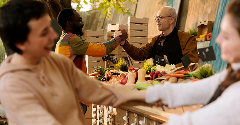
New environmental food scoring standards emerge
30 Sep 2024
EIT Food and Foundation Earth collaborate to launch environmental food scoring for products entering the global supply chain.
Read more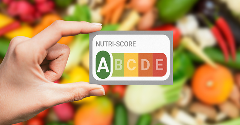
Danone removes NutriScore from products
20 Sep 2024
Following an algorithm update that gives some of its sweetened drinks a worse score, Danone has removed the front-of-pack label, NutriScore, from all of its products – putting profit before public health, say campaigners.
Read more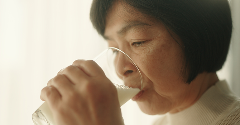
Nestlé develops a new fat reduction method for dairy ingredients
26 Aug 2024
A Brazil-based Nestlé research and development team has developed a way to reduce the fat in milk powder by as much as 60%, without impacting the key characteristics that consumers enjoy.
Read more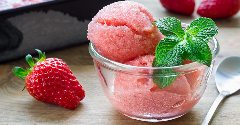
Better Juice expands its range to sorbets
16 Aug 2024
Food tech startup Better Juice has developed a technology to reduce the sugar content in fruit sorbets. The process retains the natural vitamins, minerals, and flavours of fruit, while offering manufacturers an easy-to-implement and scalable solution t...
Read more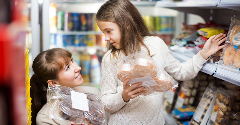
German study reveals high sugar, fat, and salt levels in children's foods
13 Aug 2024
The food industry is making slow progress in reducing the high levels of sugar, fat, and salt in German food and beverage products marketed to children, according to the Max Rubner Institute (MRI).
Read more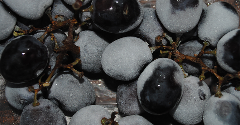
Swedish court overturns prohibition on winery’s use of imported frozen grapes
12 Aug 2024
Swedish company Drood Winery has successfully challenged the Swedish Food Agency’s decision to prohibit the production and sale of their product made from frozen grapes imported from Iran.
Read more
Paris Olympics: Food and beverage brands champion health, fun, and sustainability
5 Aug 2024
Food and beverage brands are aligning with the Paris Olympics 2024 Food Vision, which emphasises sustainability, local sourcing, and plant-based diets.
Read more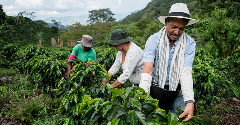
The coffee supply chain is failing farmers, says Solidaridad
30 Jul 2024
The coffee industry’s economic model means its profits do not reach farmers, despite there being enough value to be shared all along the supply chain, according to a new report by Solidaridad Network and IDH.
Read more